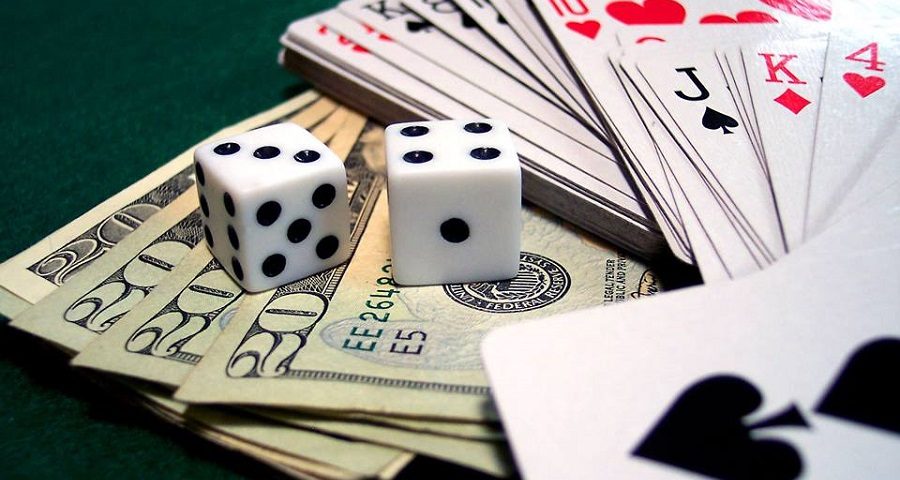How gambling addiction begins?
What signs are seen in your child using substance?
22 September 2017
What’s Addiction?
27 December 2017Gambling addiction is called continuous and repetitive inappropriate gambling behavior that disrupts personal, family and professional goals. Gambling produces negative effects that harm the person. Despite the fact that the person wants to stop the behavior of gambling as a result of these damages, he has a strong desire to gamble.
Gambling is accepted as a means of having a good time, fun and relaxation and its popularity is increasing day by day. Gambling is based on chance and skill based games where there are winners and losers on the basis of willingness to risk. Gambling is a profit way to get rich shortly without working. Gambling in private sector casinos was not prohibited in previous years. Today, although the goverment does not legally allow it, it is illegally gambled in some businesses, coffees, local and clubs affiliated with associations.
There are also some types of gambling that are legally played as well as government-prohibited gambling types. Chance games played in kiosks at every corner have become the gambling centers of today. Games such as national lottery, scratch, sports-toto, chance ball, numerical lotto, bet, billionaire and horse races are easy to play in these places. Although these games, which are based on luck, are only regarded as a means of entertainment, they become addictive like alcohol and drugs in the future.
We see that the habit of gambling in various ways has become more common in recent days. Gambling, except for the kiosks; has become more easily accessible with computer and internet. The advancement of technology and the attention of the internet, while making life easier, on the other hand, brings risk. Internet usage is more frequent among young people than adults. They definitely coincide with a betting site during their time on the Internet. In this period, which called the technology age, young people are at risk most. As the Internet becomes widespread, the frequency of playing games of chance on the computer increases day by day and virtual gambling addiction has started to increase in our country.
Gambling Reasons
Although biological factors are considered among the causes of gambling addiction, social factors are more effective in gambling addiction. Death of a parent or a relative, divorce, physical illness or life threatening, work or career disillusionment, high success, difficulties in human relations, alcohol and substance use are factors that accelerate the process of the development of pathological gambling and causing addiction. The reasons for starting gambling in factors such as inconsistency in family discipline, overvaluing monetary and material symbols, not paying enough attention to economic behaviors such as saving money, planning, not being able to react and supporting tendencies such as luck and win in childhood, and frequent gambling in other family members are common. Apart from these, the widespread of bets such as lottery, lotto, sports-toto, and various gifts from the soda or cola cap, chips, ice cream and similar foods that children can easily reach and consume are the factors that set the groundwork for the spread of gambling. The harm caused by gambling to the person is also worrisome as it can become pathological as well as the habit of gambling, the great material and moral damages it will bring to the person and the family. People who become addicted to chance games are likely to have bad results both in psychological and social dimensions. The person thinks excessively about gambling. Want to relive past gambling experiences. Consider ways to provide money for gambling or design the next game. He need to play an increasing amount of money to hear the enthusiasm or earnings he want. Gambling addicts hope to get back at once what they lost. When this does not happen, they try to cover up their behavior and losses with lies. They engage in illegal acts such as fraud, scam, theft, embezzlement to provide the money needed to gamble. Because of gambling, they endanger or lose important relationships, an opportunity for success in their education or profession. Because of their passion for gambling, they cannot fulfill their responsibilities towards their families and the environment. These addictions of people who play games that are unlikely to control them cause psychological problems in their spouses and children, neglect of parental duties, divorces, economic bankruptcy, and suicide as a result of the crisis they encounter. The atmosphere of trust in the family of gamblers is lost. Gambling causes financial loss in the family and psychological, family and social problems arise due to these losses. Relationships attempted to finance gambling are reflected in the family order and its individuals. The person with the financial loss; becomes harmful to himself, his family and the society. Addicted people think they will be rich easily through gambling. Virtues that are the foundation of society, such as work, elbow grease, right and law, disappears. The ambition to benefit and win is reflected in all social relationships. Peace and confidence in society are damaged. The person who becomes selfish and beneficial with the ambition to winning harms himself and his environment. Perhaps the most important of the damages caused by gambling is that the person increases his tendency to crime. In pathological gambling addiction, depression, suicide risk, obsessive-compulsive disorder, sexual disfunctions, and paranoia are common. The possibility of alcohol and substance addiction increases and other addictions may develop. Treatment of gambling addiction has been an attempt to control, reduce or quit gambling, which has failed many times. These people are uneasy when attempting to reduce or stop gambling. They can gamble again to escape the effects of their helplessness, guilt or anxiety and to get rid of this emotional state. Gambling addiction is a disease that cannot be overcome alone. The addict should be aware of this situation and should definitely get help to stop gambling and not to play again. The most current approach in the treatment of pathological gambling is cognitive behavioral approach. In this method of treatment, it is aimed to develop awareness of one’s perception and false beliefs. Although the treatment program is arranged according to the individual, facing the problems of the person, developing the skills of dealing with the problems and saying “no”, teaching the concept of addiction are the main issues. In addition, if there are diseases such as depression, alcohol or substance abuse accompanying pathological gambling addiction, they should be identified and treated. In establishing a successful treatment program, changing the old behavior and lifestyle of the person is important for preventing the recurrence of the disease. To cope with gambling thoughts, the addict must stay away from gambling places. Avoid sites that gamble on the Internet. Should move away from what makes up the thought of gambling. Should stay away from people interested in gambling. Turning attention to other activities (such as doing work at home, going to sports) will be beneficial. The family has a lot to do if pathological gambling addiction occurs. It should be spoken to the patient calmly, trying to listen, and must be ensured that he expresses his own problem. It is important to try to persuade the person to get psychological help. Not being left alone during the treatment, supporting, spending time together, trying to reduce the stress sources and environmental problems that push the gambling, speed up the treatment process.
Psychologist Gökçe Nuhpaşaoğlu


